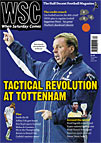 So, the big-money takeover didn’t happen. As Charlton fans go back to what they know, Tom Green takes a rueful look at recent events
So, the big-money takeover didn’t happen. As Charlton fans go back to what they know, Tom Green takes a rueful look at recent events
The announcement, when it came, was blunt. “The board of Charlton Athletic plc was today informed by Zabeel Investments that it will not be proceeding with the proposed acquisition.”
Just 13 days after the news that a company headed by the billionaire son of Dubai’s Sheikh Mohammed had made an “indicative cash offer”, the prospect of becoming the Manchester City of the south had been dashed. Thirteen days in which Charlton fans had asked the essential questions of the modern game. How much money is enough? Does it matter where that money comes from? Will we be able to sign Ronaldo?
Actually, surprisingly few people bothered to speculate about which superstars might be coming to The Valley – most comment centred around whether Alan Pardew would be replaced by either Tony Adams or, believe it or not, Dennis Wise. It was a strange feeling, though. It’s easy to scoff at other teams’ new wealth, but when your own club suddenly faces the prospect of being able to buy players of top international quality it’s hard not to get at least a little bit excited.
You also find yourself more sympathetic to the idea that billionaire investors can, in fact, have the broader interests of the club at heart. At least I did. Whereas other clubs’ new owners put up prices and hunt for glory, ours would invest in the youth team and expand Charlton’s award-winning community work. Wouldn’t they?
OK, I’m not quite that naive, but as the team’s form went from average to rubbish the lure of the buyout became ever more attractive. There was also the concern that club finances were in a seriously bad way. Talk of a £20 million debt despite this summer’s sale of dead wood – I mean, experienced Premier League players (such as Marcus Bent) – led some to predict that if the takeover fell through we’d be facing administration.
Fortunately that seems not to be the case. Zabeel’s pull-out was said to be “taken on the basis that its focus moving forward will be on domestic opportunities in Dubai that complement the current Zabeel Investments portfolio… [and was also influenced by] the current debate around foreign ownership of football clubs and the worsening economic climate in the UK.”
It was not, our board insisted, because they’d seen a black hole in the accounts. Indeed, Derek Chappell, chairman of the plc, insisted the club’s finances were sound and they were “not in a financial situation where we are desperately looking for a buyer”.
This was not always the case, of course.Charlton are best known not for winning the FA Cup in 1947 but for being rescued by their own supporters’ determination to get the club back to The Valley in the 1990s. The loss of the ground went back to a previous takeover, when Mark Hulyer’s short-lived reign ended in huge debts and the club’s near-extinction. Even though new buyers were eventually found, ownership of The Valley had been lost and Charlton were forced into exile.
That was a real crisis. Now the team just aren’t playing very well. Crowds are holding up above 20,000, we have some promising youngsters coming through and we own the ground and the training ground. The board does still seem to be looking for a buyer, but it doesn’t seem that we need one to keep the bailiffs from the door.
With any luck, the Zabeel deal that never was will prove to be a turning point. Everything good about Charlton since the Back to The Valley campaign has been hard-won. Alan Curbishley might have had his limitations, but it was very rare to see a team he put out giving anything other than a fully committed performance.
Until his final season, that is, when complacency crept in among players and fans alike. Even now, when we’re towards the bottom of the Championship, there’s been too much of a sense that we should, by rights, be near the top. Would a wealthy new owner have solved that problem? A new manager might, but it’s hard to see how sustainable massive new spending could have been and there would have been the very real risk of ending up saddled with huge debts.
Encouragingly, after the initial disappointment, supporters’ responses to the Zabeel pull-out have mostly been positive. There’s a desire to end the complacency and the moaning and to get behind the team (if not necessarily the manager). We need to remember that, while managers, players and owners come and go, we, the fans, remain. It’s our club.
From WSC 262 December 2008